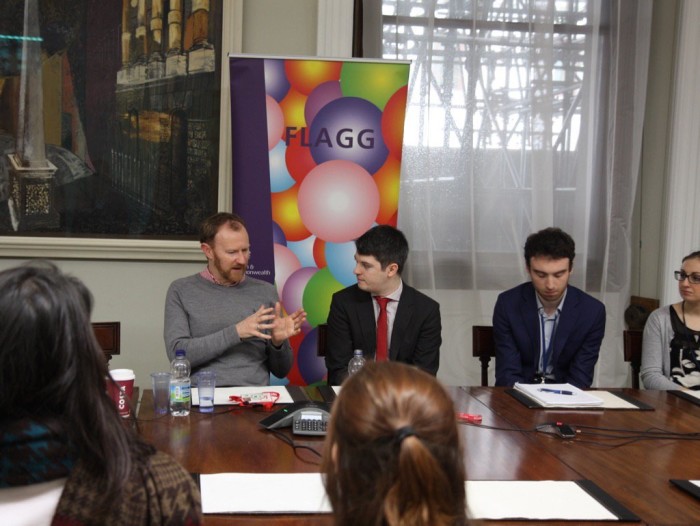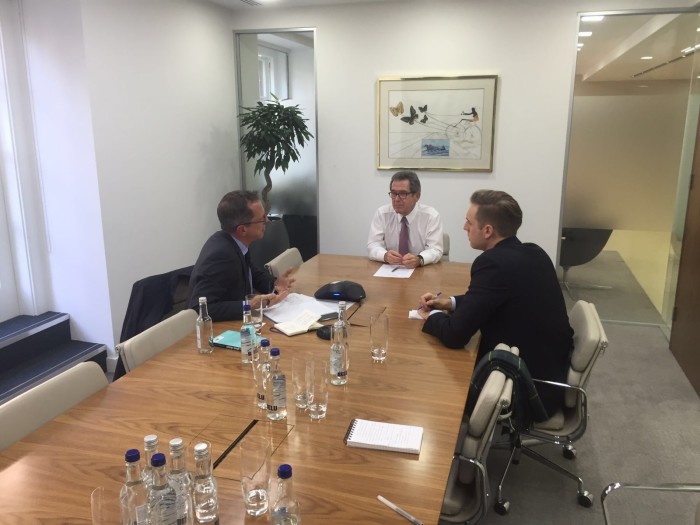31st March 2016 London, UK
Authenticity defined: a necessity in the diplomatic workplace

Authenticity. A nice word to say but what does it really mean? And where does it fit in the world of diplomacy?
Some may say that there is a contradiction in terms between authenticity and diplomacy. For me, this cannot be further from the truth – in order to be effective diplomats, we rely on being authentic with ourselves and with others. We rely on our colleagues, managers, leaders being authentic in our working environments, inclusive and reflective of the nation’s diversity.
Over the past few months the topic of authenticity has come up time and time again. Through my involvement in FLAGG, the FCO’s LGBT staff group, I have been fortunate to hear different thoughts on the subject: Lord Browne, ex-CEO of BP, speaking to a FLAGG learning set; Mark Gatiss speaking at an FCO event; attending a Stonewall LGBT role model training course. When trying to write this, I came across Daniel Pruce’s blog on authenticity and his epilepsy, which certainly struck a chord with me.

I have questioned how authentic I really am, and have been in my personal and professional lives. Ever since starting as a local staff member in Brussels, I have felt comfortable in my work environment to bring all I am to work – a combination of welcoming and friendly colleagues and a sixth sense of feeling at ease. This does not mean I go speaking to everyone about my personal life, but I do not hide behind a mask when talking about the fact that I am gay. Did it initially make me feel vulnerable? Yes. Is it harder to be authentic with external contacts than with my workplace contacts? Sometimes. Do I regret being authentic and my true self in the workplace? Absolutely not.
Being authentic is not about being out. Being authentic is not something restricted to LGBT people. We are all diverse in our own ways, and as diplomats, as human beings, we need to celebrate that. It is through tapping into this diversity that any organisation is able to become more effective, efficient and develop their employees into true leaders.

There is a cost of not being ourselves. If we feel unable to bring our true selves to work then we will never be able to reach 100% of our potential when doing our jobs. There is also a personal cost – it takes considerable effort to deflect, dodge, or correct questions – this is not healthy for anyone. In previous jobs where I felt I couldn’t be myself I know that in some way my work and relationships with colleagues did suffer. I spent more time thinking about what to say, how to change topic than I did actually developing a rapport with them.
How can organisations help people be authentic in the workplace? It is as simple as ensuring that organisational policy, culture and workplaces are as accepting and inclusive as possible. There is no magic switch for authenticity but if employees feel comfortable in their working environment then it helps them to open up and be their true selves. In my time with the FCO, I’ve seen this put into action, from leadership #iwill pledges for inclusion to the adoption and endorsement of a workplace charter by all UKREP staff, encompassing diversity and beyond.
We all have different experiences at different stages. It is part of the diversity that we contribute to as part of the FCO. In an unsettled world we cannot afford to not be the best we can be. We need to move away from energy being taken away by not being ourselves towards energy being invested into fostering work environments that are inclusive and supportive for all.
Inspired from my Stonewall course:
I will stop thinking and reflecting too much.
I will start finding ways to be a role model for those around me, to help them feel comfortable and able to be authentic.
I will continue bringing the whole, true, me to work and being all the better and happier for doing so.
What will you do?